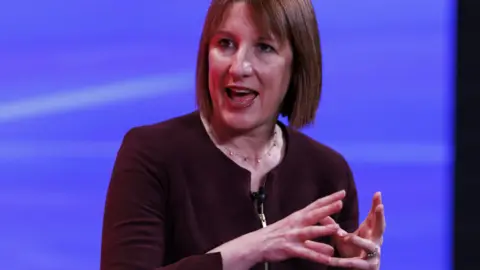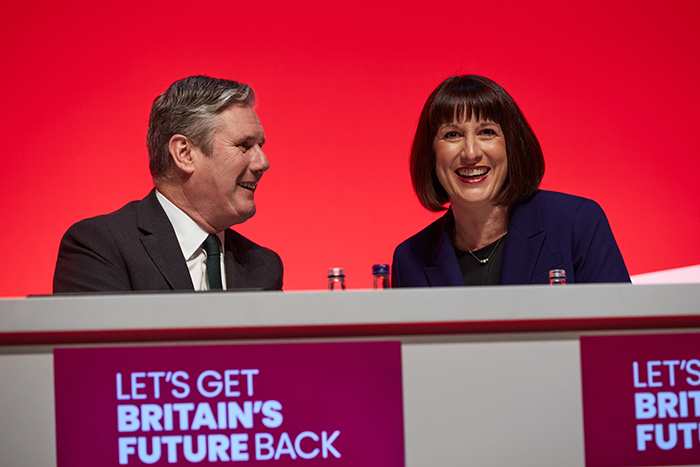Good morning. Third-quarter earnings season is off to a good start. It’s mostly been banks so far. Market volatility has made the trading desks happy; on the retail side, interest margins are holding up better than expected; and the banking sector is up 6 per cent in the last week. In even happier news, the FT Alphaville Pub Quiz is returning to New York on November 12. Unhedged will be hosting a round — we hope to see you there for some wonky questions and a few drinks! Instructions for how to sign up are here. Email us: robert.armstrong@ft.com and aiden.reiter@ft.com.
Gold
A lot has been written about the gap between consumer sentiment, which remains bad, and employment and wages, which are strong. Something similar is happening in markets: sentiment is increasingly bullish, but gold continues to rally like crazy. This is not a totally anomalous situation, but historically gold has often peaked when investors are feeling insecure. That is not the case today. Here is a chart of the American Association of Individual Investors sentiment survey’s bull-bear spread (I use the 24-week average as it is a very noisy series) plotted against the gold price. The dotted lines mark spots where gold peaked just as sentiment troughed.
It is not just the AAII survey that shows sentiment is strong. Bank of America’s global fund manager survey this month showed the biggest leap in sentiment since June of 2020, along with bond and cash allocations coming down. So why is the price of the classic maybe-something-awful-happens asset, gold, hitting epic highs?
Unhedged has written several times before about the oddness of this gold rally. To recap the main points:
-
The gold price does not seem to be responding in a straightforward way to inflation or money printing. Gold rose when the first emergency fiscal and monetary actions increased the money supply in 2020. But then it went sideways as the money supply expanded further and inflation took hold. It was only after the Federal Reserve started absorbing liquidity, rates rose and inflation was slowing that gold really started to jump. Here is the gold price, M2 money, and the CPI price index rebased to 1 as of January 2020:

-
The normal relationship between gold and real interest rates has broken. The real interest rate is the opportunity cost of owning a yieldless metal, so when real rates rise, gold tends to fall. Not this time:
-
Similarly, gold and the dollar strengthened in tandem for much of this year. Usually, because gold is priced in dollars and inversely related to US interest rates, they move in opposite directions. The relationship has normalised somewhat recently.
-
Gold mining stocks are not participating in the rally. The chart below, from James Luke of Schroders, shows the ratio of the gold price to the price of the VanEck Gold Miners ETF (the green line). Miners are very cheap compared to the metal. The blue line is the current gold mining industry “all-in sustaining cost margin” for producing an ounce of gold. The margin is very high indeed. A strange combination, and one that suggests that investors in gold miners — to the degree there are any of those left — do not believe $2,700 gold is going to last.

As a way to make sense of these oddities, one might ask, who is buying all the gold? In particular, who has been buying it since it passed $2,100, the level at which many experts thought demand from price-sensitive buyers would dry up?
The first candidate is central banks. They did significantly increase the portion of their foreign exchange reserves held in gold in 2022 and 2023. But, according to the World Gold Council’s demand report, central bank demand is roughly flat in the first half of 2024.
Investment demand — ingots, coins, ETFs — also seems to be flattish relative to last year. While the holding of gold ETFs are rising a bit, they are still lower than they were last year at this time. Here’s a chart from Josh Wolfson at RBC:

Jewellery demand does not seem to be the culprit, either. Chinese and Indian jewellery demand, an important part of the global picture, has fallen dramatically as prices have risen and the Chinese economy has slowed, according to the WGC.
Who is driving the price then? I have heard various theories: sovereign wealth funds buying on the sly and hedge funds chasing the price are the most popular. Certainly, it is the case that momentum-driven quant funds will pursue any price with a strong upward trend.
Whoever the marginal buyer is, the move from $2,000 to $2,700, if it should be sustained in any meaningful way in the months to come, does suggest that gold may be becoming a slightly different kind of asset.
Of course it could be that gold is responding to the fact that there are wars in Europe and the Middle East, as well as acute electoral uncertainty in the US. Indeed, geopolitical worry is almost surely part of the story. But if it were the whole story, shouldn’t stocks be falling, and bond volatility be rising?
In a world awash in liquidity, gold may have become another asset investors buy when they decide they have too much cash on their balance sheets. If something like this is true, it would suggest that gold will act more like a risk asset, and less like a hedge, in the future.
A quite different explanation is that gold, rather than responding to short- or medium-term moves in rates, inflation and the money supply, is making an adjustment to the expectation that we are in a new, more fiscally profligate regime where the neutral rate of interest is higher, central banks are under more pressure, and inflationary incidents are more common. In such a world, gold might deserve a somewhat larger place in the optimal portfolio.
As something of a gold sceptic, I am struggling to accept any of these hypotheses. But I would be very keen to hear readers’ views.
One good read
Flood insurance should probably be more expensive.
FT Unhedged podcast

Can’t get enough of Unhedged? Listen to our new podcast, for a 15-minute dive into the latest markets news and financial headlines, twice a week. Catch up on past editions of the newsletter here.
















































































































































You must be logged in to post a comment Login